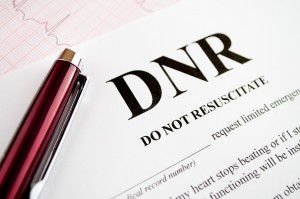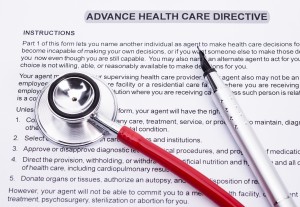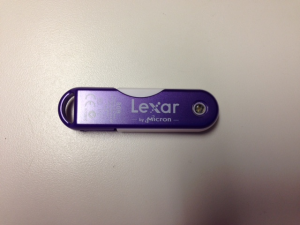“Does your father have a DNR on file?” Dr. Li, my dad’s ER physician, called me because I was Dad’s medical power of attorney (MPOA). Fortunately, I already knew that DNR stood for “Do Not Resuscitate.” Dad always had his DNR taped to doorways and cabinets wherever he lived! But as I handled more questions from Dr. Li, I realized I wasn’t as prepared to make decisions for my Dad as I thought. Because many of you will find yourself in this role at some point, I want to share some lessons I’ve learned to help you better prepare.
Dad was always proactive. He communicated in 2009 that he was ready to meet the Lord. He emphasized that under no circumstances did he want his life to be artificially sustained. He said, “Please let me go, and REJOICE with me when that happens!” Then in June 2011, he approached me to see if I would be his MPOA. I readily said, “yes.” Months after I agreed to this role, I received a copy of his MPOA document, along with his living will, a directive to medical providers. Instead of reading the documents word-for-word, I skimmed the pages to get the gist of his desires and promptly filed it away. That’s not good preparation!
Four years later, I found myself thrust into making medical decisions for Dad without warning. Dr. Li called me several times to discern Dad’s wishes so he could proceed with his care. I had to think on my feet. I was at a service station the first time he called and in no position to access Dad’s living will. All I remembered of Dad’s wishes was that he was ready to go “home.” Every time Dr. Li asked a question, I repeated a question of my own: Does this procedure artificially sustain Dad’s life, or is it meant to make him more comfortable?
I winged it, but you don’t have to. Here are a few recommendations so you will be ready when it’s your time to make medical decisions for your family members:
1) Read the documents your loved ones took the time to prepare!
By God’s grace, I answered Dr. Li’s questions correctly without reading Dad’s living will closely. I looked it up after he died to confirm this. “If, in the judgment of my physician, my death is imminent within minutes to hours, even with the use of available medical treatment provided within the prevailing standards of care, I acknowledge that all treatments may be withheld or removed except those needed to maintain my comfort.” Dr. Li told me that he considered Dad’s respiratory distress as an “end-of-life” situation. Once they removed his Bi-Pap mask that pumped oxygen into his lungs, Dad could die within minutes or hours.
2) After you read the documents, sit down with your loved ones to process them and make sure you understand what they desire.
I was negligent, but this doesn’t have to be true for you. Healthcare decisions are more complex than you think. For example, think about a DNR. Suppose a loved one goes into cardiac arrest and stops breathing. Does the DNR mean “do not resuscitate” in all circumstances? Imagine yourself having the cardiac arrest. If all it takes is for a person to perform CPR, don’t you want that? I think we owe it to our loved ones to get these kinds of clarifications.
3) Make sure you have these documents at your finger tips.
With today’s technology, documents can be at our finger tips. Here are some ideas:
- Buy a USB stick (approximately $8) and download these documents. Store the USB stick in your purse, or attach it to your key ring.
- Email your medical provider a copy of your MPOA and living will. Many times your doctor will be the referring physician when you need more specialized care. They can forward these documents with your permission to other providers.
- Consider storing your documents in a digital filing cabinet like Evernote, which you can access by their phone App or on your computer via the Internet.
- Keep a hard copy of these documents in your glove compartment and in your home files.
4) If you haven’t established your living will and/or medical POA, now is the time.
Are you procrastinating to get your living will and MPOA in place? If yes, welcome to the club. I have an offer for my Texas readers that you shouldn’t pass up. My attorney is willing to offer his services at a special price of $75 if we contact him in the next 90 days and use my name as your referral source. Here is his contact data: Don Walden, 512-349-9595, donwalden@peoplepc.com. If you live in Texas, he will offer this $75 rate through October 16, 2105.
If you have been in this role and have some lessons to share with us, please do so below.
Blessings,
Lee Ann





Thank you Lee Ann. I hadn’t thought to digitize or carry a smart stick of information. Sure gets complicated sometimes doesn’t it.
Hi, Letty:
It sure does! Notice that this great idea came AFTER I found myself thinking, “Where is a USB stick with all of this important data when I need one!”
Blessings,
Lee Ann
Great advice Lee Ann. Thank you for sharing.
CB
Thanks, Candy. Take care of yourself!
Blessings,
Lee Ann
This is excellent advice. Even being an RN this job is not easy! I was MPOA for my sister and it was the hardest thing I’ve ever had to do. Thank you for writing this experience.
Thank you, Deonne. Bobbie was blessed to have you be her MPOA! I think that your being a RN is certainly an advantage, but I also appreciate your honesty that medical decisions can still be difficult and complex, even with all of your training!
Blessings,
Lee Ann
Oh, Lee Ann! You are so correct! Even when someone is as clear as your dad was about his wishes to not prolong his earthly life, there are just lots of “gray” areas!! I have seen this many times. You were also blessed to not have any disagreement with siblings or other family, which is even worse. I am afraid that most people get their information about resuscitation from the TV. A Code Blue is really an ugly procedure, and rarely successful in elderly with chronic illness. Many people don’t want to be “kept alive on a machine”; but as you now know, there are many other decisions. When my dad made me his medical DPOA, I sat him down and asked him very specific “what if” questions: What if he had pneumonia? (He had severe COPD.) Did he want antibiotics? Did he want hospitalized at all? What if the doctor thought a ventilator MIGHT help him if used temporarily? But then what if it didn’t? What about feeding tubes? These are very difficult questions to ask. Lots of communication with our elders, even when difficult, is so important, as well as communication with other siblings or family. I was blessed that both my sister and I (the only children) are both in healthcare and knew all too well how difficult these decisions can be. We were in complete agreement about what was best for our dad, and what would honor his wishes. Too many times family is so stressed and beginning to mourn that they cannot make the best decisions.
Thank you for sharing your thoughts, Debbie! There are lots of gray areas, and because of your training as a nurse practitioner, you know all the right questions to ask! Attorneys who are drafting the standard language of the State you live in can’t really help us there. I took my own advice and secured a medical POA and did my living will last week, and there were statements in my documents that my attorney couldn’t begin to answer!
I’m going to steal your specific questions and process them with my Mother and stepfather as I am their medical POA too. I will also ask my own provider and an emergency room doctor who is in my SS class what questions they would add. It’s time to get clear on what they really want in common scenarios. As an aside, I didn’t know a Code Blue is rarely successful in elderly with chronic illness. That was interesting.
Blessings,
Lee Ann